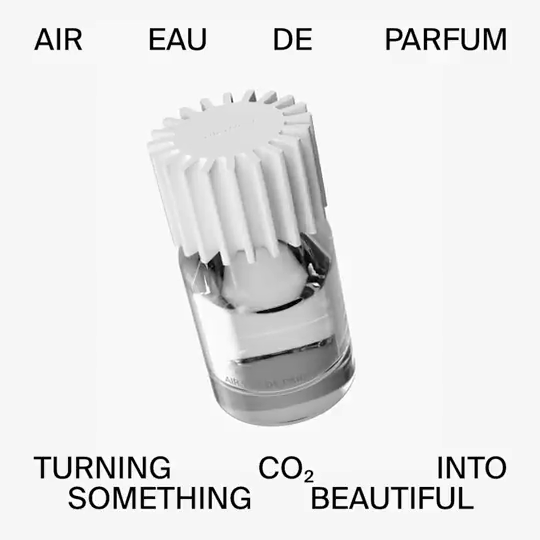Bonjour app is a Parisian transport companion
Paris – Seeking to simplify daily life for Parisians, the transport app is offering a one-stop service for functional and leisure pursuits across the city. Through Bonjour, users can check metro times and tickets, reserve bicycles on the city’s bike-sharing network Vélib, and hail cabs through its Marcel taxi service. Taking a holistic, lifestyle-driven approach, the app also allows people to search areas for restaurants, cinemas and other recreational activities.
Bonjour is an initiative by the city’s main public transport operator, Régie Autonome des Transports Parisiens (RATP), reflecting the transport board's strategy to humanise the daily experience of navigating Paris. Its name, Bonjour, together with a modern visual identity by creative agency Sid Lee, are designed to instil greater confidence in urban dwellers. ‘Parisians find everything complicated – especially when it comes to mobility,’ says Jean-Baptiste Destabeau, director of Sid Lee Paris. ‘The aim was to create a simple, accessible, human, daily brand.’
As global cities adapt to the fluctuating needs of their residents, the creation of apps for locals reflects a shift towards more equitable urban environments that prioritise the experience of daily living over continuous economic growth.
Strategic opportunity
Travel and hospitality brands can take cues from this service, finding ways to ease the experience of discovering – or re-discovering – a city through seamless digital platforms. Streamline multiple services to create one go-to booking destination
This fragrance is made with captured carbon emissions
New York – NASA-approved Air Co is applying its carbon removal technology to the beauty sector, with the launch of a genderless fragrance that helps tackle climate change. Although Air Eau du Parfum is the company’s first foray into the fragrance industry, the perfume is made using the patented carbon removal technology that the brand is renowned for – and has previously applied to vodka and rocket fuel.
Using a multi-step process, the company breaks down harmful greenhouse gases that contribute to global warming and climate change, repurposing CO2 to create the perfume, which is scented with fig leaf, orange peel, jasmine and violet. As well as being created using 100% renewable energy, customers are given the option to select between bottle designs that have different environmental footprints, highlighting the need to give customers transparent options.
As the ‘clean beauty’ movement continues to gather momentum, carbon-negative products are set to be the next frontier for responsible consumption. To learn more about brands pushing beauty in surprising directions, read about five beauty and wellness brands exploring extremes.
Strategic opportunity
Not all companies will have access to sophisticated carbon capture technology, but it doesn't mean they can't collaborate and share knowledge with innovators such as Air Co, help to apply eco-technologies to every industry
Vienna Tourist Board brings fine art to OnlyFans
Vienna – The Vienna Tourist Board has launched a provocative marketing campaign by creating an OnlyFans account for the city’s nude works of art. The move comes after many of the city’s museums faced censorship when promoting ‘explicit’ work by artists such as Egon Schiele and Koloman Moser on traditional social media platforms such as TikTok and Instagram.
Priced at £3.62 ($4.99, €4.28) per month, the subscription offers a free Vienna City Card or ticket to one of the featured museums in a bid to translate online engagement into footfall and tourism – which is particularly important after tourism arrivals fell by 78.4% in 2020.
In addition to access to art, the campaign also contains promotional material, such as the Vienna strips on OnlyFans video, designed to connect the fine arts institutions with a young, digital-first audience. Vienna’s new strategy continues the risqué tongue-in-cheek style of our Post-modern Museums microtrend as well as Pornhub’s Classic Nudes series, which uses humour to make a statement on the nature of artistic freedom, censorship and social media policy.
Strategic opportunity
Traditional institutions and heritage brands across sectors should adopt marketing strategies that take inspiration from internet culture, speaking to young people in their native – and visual-first – language
Stat: John Lewis sees a surge in sustainable homeware
Findings from John Lewis’ latest annual report reveal that consumer interest in eco-friendly furnishing is growing rapidly, with online searches for ‘sustainable home’ surging 650% between August 2020 and September 2021.
As part of this demand for eco-friendly homeware, the report spotlights the rising popularity of multi-purpose rooms for more flexible living. As employees look to create WFH (working from home) stations in their living rooms and kitchens, they are prioritising sustainability as a guiding principle for these new purchases. John Lewis’ desk rental scheme with Fat Llama proved particularly popular as demand for home office supplies soared, and a 77% rise of online searches for ‘vintage’ and 55% increase for ‘antique’ provide further evidence that sustainability is a prime concern for shoppers.
As the pandemic accelerates demand for adaptable living spaces and flexible working, the Premium Homeware Market is well positioned to capture consumers who are looking to elevate their domestic environments in eco-friendly ways.
Strategic opportunity
It's time for homeware companies to incorporate vintage and second-hand furniture lines into their offerings – or be ready to be on the receiving end of a newness backlash
:strip_exif():strip_icc()/filestorage/images/108133/banner-image30-8.jpeg)
:strip_exif():strip_icc()/filestorage/images/108134/ratp-app-pr-all.jpeg)
:strip_exif():strip_icc()/filestorage/images/108132/ratp-pr-01.jpeg)

:strip_exif():strip_icc()/filestorage/images/108144/201324447-544777870234999-4636453366093797340-n.jpeg)
:strip_exif():strip_icc()/filestorage/images/108146/1-2-schiele-sammlung-im-leopold-museum-41248.jpeg)
:strip_exif():strip_icc()/filestorage/images/108154/ntk-stat-temp.jpg)
:strip_exif():strip_icc()/filestorage/images/129577/thefuturelaboratory-tweezers-crafting-necklaces-of-futuristic-062f2548-1d0a-42f3-8f26-337b64f6cb03-1.png)
:strip_exif():strip_icc()/filestorage/images/129480/23aw-pr-sp-fenty-q3-main-talent-2937.png)
:strip_exif():strip_icc()/filestorage/images/129438/small-time9229-copy.jpg)
:strip_exif():strip_icc()/filestorage/images/129487/screenshot-2025-12-08-at-11-31-06.png)
:strip_exif():strip_icc()/filestorage/images/129402/scorpios-bodrum-by-georg-roske-17004-highres.png)
:strip_exif():strip_icc()/filestorage/images/129281/crop.png)
:strip_exif():strip_icc()/filestorage/images/129264/003-nike-after-dark-tour-reimagined-race-medal-1.jpeg)
:strip_exif():strip_icc()/filestorage/images/129367/bridgerton-401-unit-02497r.jpg)
:strip_exif():strip_icc()/filestorage/images/129292/54918170927-2d863b7021-k.jpg)
:strip_exif():strip_icc()/filestorage/images/129224/adobestock-622059454.jpeg)
:strip_exif():strip_icc()/filestorage/images/129569/screenshot-2025-12-11-at-09-36-19.png)
:strip_exif():strip_icc()/filestorage/images/129122/lsn-video-thumbnail-template2.png)
:strip_exif():strip_icc()/filestorage/images/107033/luxury.jpg)
:strip_exif():strip_icc()/filestorage/images/129530/small-mantle-180625-01-v2-copy.jpg)
:strip_exif():strip_icc()/filestorage/images/124894/small-mabel-lockbox-adam-firman-1-copy.jpg)
:strip_exif():strip_icc()/filestorage/images/106541/4-gen-x.jpg)
:strip_exif():strip_icc()/filestorage/images/129510/oloris-2-scent-edit.jpg)
:strip_exif():strip_icc()/filestorage/images/106541/4-gen-x.jpg)
:strip_exif():strip_icc()/filestorage/images/129508/land-o-lakes-clove-shoes.jpg)
:strip_exif():strip_icc()/filestorage/images/129483/screenshot-2025-12-08-at-11-22-48.png)